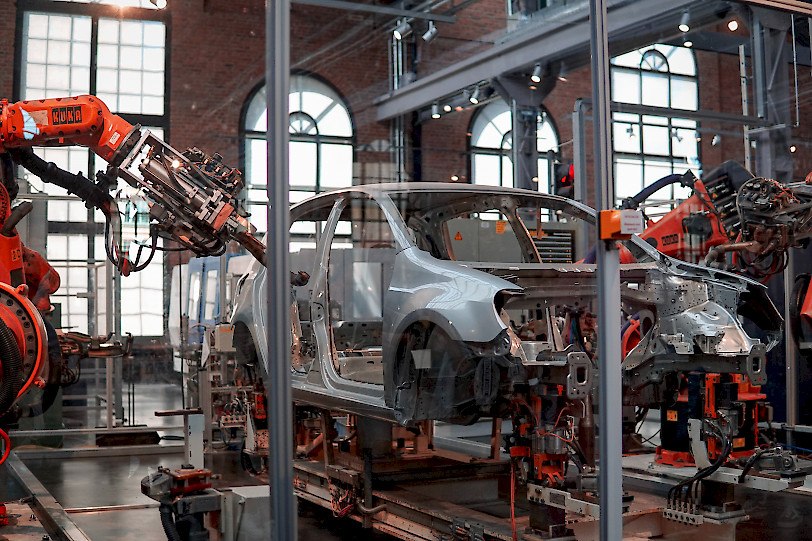Preparing the experts who will realise the Industry 4.0 transformation

In this specialisation, students learn what Smart Industry means and which core skills they will need as future professionals. Those skills include machine-to-machine communication, information sharing, sensor data collection and visualisation, but also an understanding of process-based operations and the downstream impact of interventions.
Industry challenges
The challenges students face are very diverse explains Suzana Andova, ICT lecturer and coordinator of the ICT & Smart Industry specialisation: "The digital transition affects all production processes, which makes it difficult for organisations to tackle it in a structured way. You have to deal with the integration of older machines and smarter production processes, and the collection of data for new Internet of Things (IoT) infrastructures. A second question is how you can then visualise and use data from and for smarter production. These are big challenges that require a new way of thinking."
Crucial role for 'enabling' ICT technology
ICT plays a crucial role in Smart Industry applications. It is not the machines that become smarter in production processes, but the software that drives them and the underlying systems that run on data and make the information flow of an entire process possible. Andova: "One of our partner companies once said: 'building machines has become software development'. The process of digitalisation is accelerating because enabling technologies such as IoT, Big Data, cloud computing, AI and robots have become extremely advanced. Our students understand the possibilities and learn how to integrate them into a production process. They do this together with partner companies via specialist modules of their own choice. In these, they learn to work with, for example, industrial IoT, industrial automation, data engineering, human-machine interaction or intelligent management."
Digital Twin Academy
Fontys is involved in the international Eurreg research project 'Digital Twin Academy', which studies the application of digital twinning in various fields. This project, which focuses on a key technology for Smart Industry, also devotes a great deal of attention to sharing knowledge with the industry and to making the new technology accessible. The launch of this specialisation fits in well with the role of Fontys as a pivot between industry, applied research and the training of future professionals.
Smart Industry engineers of tomorrow
According to Andova, training students for Smart Industry is an absolutely necessary step. Creating the Smart Industry requires specialised knowledge: "It is important that students understand the basics of this global transformation, but the various applications in industry are so broad that you have to choose a focus area within the specialisation ICT & Smart Industry. That way, students cab gain expert knowledge in a specific aspect of technology, which enables the transformation. A student can focus on IoT and learn about current protocols, cloud storage and security issues. Another may opt for intelligent management, and learn more about supply chain management, but also data analysis and R language. Within the specialisation ICT & Smart Industry we offer 5 different modules. A team of lecturers with different backgrounds will be there to support students in each of these. Also, our innovative business partners provide workshops and students work with them on actual Smart Industry projects, so that they can immediately apply their knowledge and gain experience in the field."
Students who are interested in participating in this specialisation or who want to know more, as well as businesses who want to participate should get in touch with Suzana Andova, coordinator of the ICT & Smart Industry specialisation. More information can be found here.